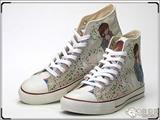Heyun Socks Industry
Heyun Sock Industry (Stinky Socks Supermarket) Profile:
Heyun Sock Industry (Stinky Socks Supermarket) is a professional sock supermarket under the Heyun Company, established in 2005. It mainly wholesales and retails: elder socks, children's socks, infant socks, men's socks, women's socks, sports socks, health care socks, pantyhose, five-toe socks, gauze socks, cotton socks, silk stockings, boat socks, craft socks, etc. Currently, it is actively promoting a franchise plan for specialized sock supermarkets.
Discovery, excavation, integration, and enhancement: the brand road of Heyun Sock Industry (Stinky Socks Supermarket).
In the vast commercial sea and market, all comers are busy for profit.
More than 20 years ago, China bid farewell to planned economy and welcomed the market economy; more than 10 years ago, China surpassed the subsistence level and entered the consumption threshold; today, we are about to surpass the product era and welcome the brand era.
Although products are still the foundation of brands, the slim profits of products themselves, the competition in product markets, the disorder in product channels, and the sluggishness in product consumption have already made the designers, developers, distributors, and sellers of products lament deeply, falling into deep crisis and confusion.
"Fine wine needs no bush." Facing the worry of excessive products, this ancient proverb probably needs to be rewritten—"Deep alleys make selling wine difficult." Classic marketing theories have repeatedly reminded us. When people satisfy their basic material needs, they begin to seek spiritual needs, from eating enough and wearing warm to eating well and dressing fashionably, from physical comfort to psychological pleasure, from self-satisfaction to others' appreciation, from objectivity to subjectivity, from individual to group, from family to society, from reality to fate... These changes have already put forward new requirements for products, consumption, and markets, while also setting up invisible obstacles and pitfalls for merchants focused solely on products. Many companies that pour their heart and soul into product development seem not to see such a rule: from technology to product, the success rate is 3%; from product to commodity, the success rate is 2%; from commodity to brand, the success rate is 1%; from brand to famous brand, the success rate is 0.1%! This fact tells us that producing an applicable product is simple, but launching a renowned brand is very difficult.
Based on a profound understanding of the market and consumption, Heyun Sock Industry (Stinky Socks Supermarket) considers introducing international well-known brands through horizontal methods such as buyouts, agency, and cooperation, as well as adopting vertical strategies such as transformation, reorganization, and investment to rebuild brands. Whether horizontally or vertically, everything is based on the quality of the product itself as the reference system, the use of the product as the market reference system, and the latent tension of the product as the brand reference system. Regardless of how products are integrated or what kind of brand is launched, the "Eight Easy" principles are adhered to: easy to grasp quality, easy to express personality, easy to enhance concepts, easy to recognize functions, easy to reveal value, easy for terminals to accept, easy for effects to spread, and easy for the market to succeed.
According to the aforementioned "Eight Easy" principles, Heyun Sock Industry (Stinky Socks Supermarket) has, in nearly three years, gone through hundreds of enterprises and tens of thousands of products, eliminating the dross and retaining the essence, building a massive brand resource library and a global logistics supply system that adapts to the situation. Based on market feasibility, it excavates, reserves, and forms a solid brand pyramid, primarily introducing the market via "specialized stores" and aligning with consumption.
Revolutionary charm begins from the feet!
Wholesale and retail: elder socks, children's socks, infant socks, men's socks, women's socks, sports socks, health care socks, pantyhose, five-toe socks, gauze socks, cotton socks, silk stockings, boat socks, craft socks, and much more...
Better to have none than too many.
The idiom "better to have none than too many" has a clear meaning: it's better to lack something than to lower standards and settle for inferior quality. This saying applies whether choosing friends, using objects, or doing academic research, making it universally relevant. A folk saying goes: "Rather eat one fresh peach than a basket of rotten apricots," which is even more vivid and fitting.
On the contrary, there is the idiom "padding the numbers." In Han Feizi's book "Inner Treasury Upper Section," it says: "King Xuan of Qi ordered someone to play the yu flute, always gathering 300 people. Nanguo Mr. requested to play the yu for the king, who was pleased and provided food for hundreds of people. After King Xuan died, King Min took over, preferring each person to play individually, so Mr. fled." This anecdote highlights the principle of "better to have none than too many" from another angle. If King Xuan hadn't sought superficial prestige and forced the numbers, there wouldn't have been room for Nanguo to pad the numbers; one forcing the numbers and the other padding them gave opportunities to those without real talent. Without saying, if King Xuan had been like King Min, those padding the numbers wouldn't have succeeded.
Lack and excess naturally have standards; different standards lead to different choices. For different people and matters, these standards can vary greatly, just like radishes and Chinese cabbage, each having its own preference—a basic rule. Just like rain, travelers may dislike the mud, farmers may worry about flooding, but poets may praise its beauty. The same thing gives different feelings to different people. In real life, there is another standard—like attracts like. We often see gamblers befriending other gamblers, prostitutes meeting johns, corrupt officials colluding, fraudsters working together, arsonists associating with murderers. As the common saying goes, "birds of a feather flock together," which is due to shared standards.
We often see those who invite wolves into their homes regretting it endlessly, forgetting the essence of "better to have none than too many." Like King Xuan enjoying the yu flute and seeking superficial prestige, being careless in choosing friends ultimately led to bad results. Conversely, if one overly criticizes and raises standards excessively, it might result in "too pure water holds no fish" or "a person who is too critical will have no followers," extremes leading to opposite results.
Academic research demands seriousness and avoids excess. That Nanguo Mr. is an example. The ancients told us long ago: "Knowing is knowing, not knowing is not knowing—that is knowledge." "Better to have none than too many" may also be the essence of our academic pursuits—never be like Nanguo Mr., pretending to know when you don't. The truth will eventually come out.




